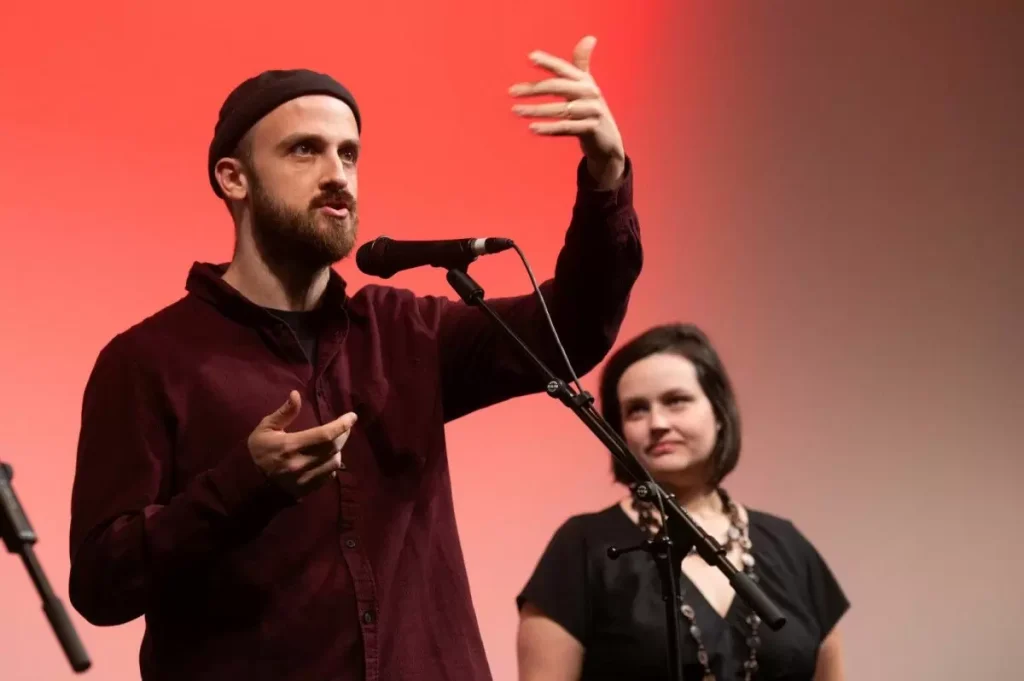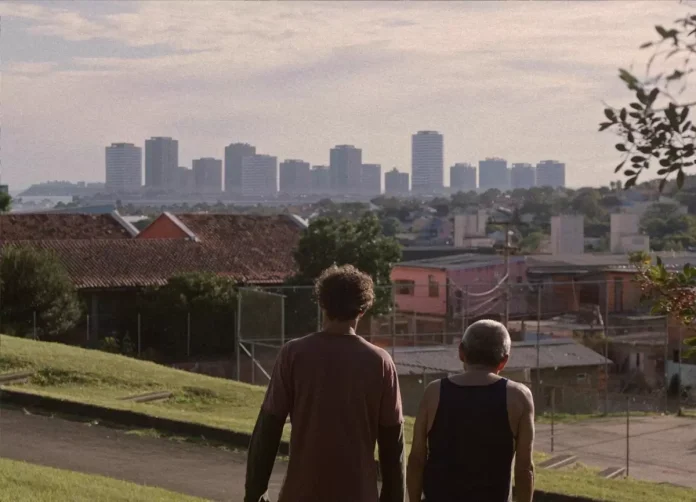Shaped by Brazil’s deepening class inequalities—visible in its urban landscape and the surge of luxury developments in Porto Alegre that echo cities from Miami to Dubai—filmmaker Davi Pretto presented his latest feature, Future Future, in Karlovy Vary’s Proxima section. Known for Continent (2024), Pretto intertwines themes of social breakdown, technology and ecology in the story of K, a 40-year-old man with amnesia who is taken in by an older stranger in his 60s on the rain-soaked margins of a Brazilian city. Against this backdrop, the rise of artificial intelligence collides with the spread of a mysterious neurological disorder, sending K on a personal quest to rediscover his sense of self and place in the world.
“There’s a shortage of dystopian films in Brazil considering the reality we live in,” Pretto said to C7nema. “The country refuses to face its own violence and the injustices that have been there since its foundation. In many ways, Brazil has been living in a dystopia from the very beginning, and that’s a truth we’ve never truly confronted.”
Pretto says Future Future was born from “a need to examine this feeling that we can no longer recognise ourselves, either as individuals or as human beings, in a world that seems on the verge of collapse.” For him, the film confronts “a kind of pervasive unease that everyone senses but no one can name. And because it has no name, we can’t tackle it head-on. It shows up as layers of crisis—political, social, environmental, technological—that blur our sense of who we are.”

He also frames the project as “a meditation on cinema itself—on our relationship with images, how they move us, and how they shape our wants.” Looking at Porto Alegre’s rising luxury enclaves, Pretto sees “not Brazil, but the fantasy of an elite. They can’t stand Brazil,” he says, adding that the film’s themes are inseparable: “They’re all part of a visual project of what that city dreams of becoming.”
His research into artificial intelligence left him unsettled. “Most experts can’t even agree on what the future will look like. AI systems are trained on ideological datasets,” he notes. And that, he warns, will inevitably reshape cinema. “The big studios and platforms will have access to exactly the content they want. AI predicts based on training. Mainstream cinema is already a format that endlessly repeats itself. The real question is how festivals—many of which are screening fewer independent films and more studio and platform productions—will respond. When festivals were born in the 1940s, it was to show something other than that template-driven cinema”
What’s ahead
For Pretto, the engine is uncertainty. “Certainties paralyse you. Doubt keeps you in motion,” he says. He’s already developing a new film, though it’s too early to disclose details, aside from the fact it will explore “a taboo within society and a particular form of violence.”
As for the industry, he has no desire to move into streaming or studio filmmaking. “I care about cinema itself, not platforms. I have zero interest in that world. For me, it’s all about the process, not the idea. If a project required a big studio to exist, I wouldn’t want to make it. That’s not who I am. The machinery of studio filmmaking can be brutal, and I have no interest in that.”


